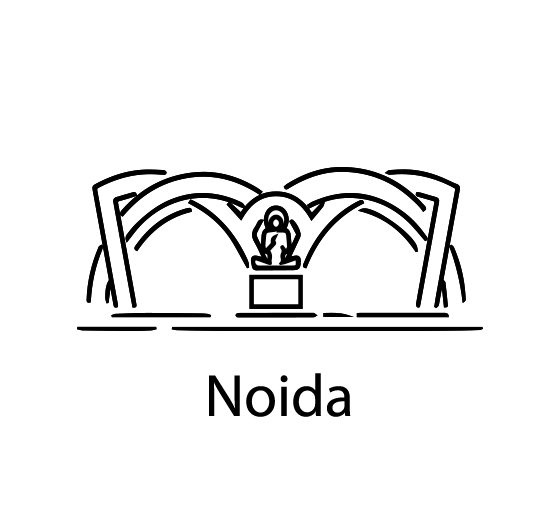How to Protect Your Car Body from Chemicals and Aluminum Corrosion?
How to Prevent and Manage the Corrosion of Aluminum
A thrilling experience is buying a car. You must take precautions to shield your new car from the weather because it is also a significant investment. Corrosion of aluminium is one of the biggest threats to your car.
Your car’s body, wiring, structure, and everything else are made of aluminium. In light of this, proactive measures should be taken to stop and manage the development of aluminium corrosion. By doing this, you can be sure that your car will keep looking wonderful for many years to come.
What Is the Difference Between Rust and Corrosion?
Many car owners mistake rust for corrosion. Both are bad for your car, but they differ significantly in the chemical processes that go into their production. Although rust is a particular type of corrosion, not all corrosion is thought to be rust.
The main features of corrosion are as follows:
- Wood, metals, and organic tissues are just a few of the materials that can experience corrosion.
- It is the end product of chemical or electrochemical processes.
- Exposure to chemicals or air can both cause corrosion.
- Metal oxides or salts can occur as a result of corrosion.
- Ceramics and non-ferrous metals are both susceptible to corrosion.
- Corrosion is frequently referred to as deterioration when it occurs on non-metals.
Corrosion, not rust, is present if you see deterioration on a non-ferrous surface of your car. When you are cleaning your car, paying close attention to it might help you see corrosion indicators early and stop it in its tracks. For instance, wheels and wheel wells are some of the most typical locations for corrosion, thus it is crucial to regularly inspect and clean these areas.
The Aluminum Association released a handbook to three vehicle corrosion types—galvanic corrosion, filiform corrosion, and crevice corrosion—to help people better understand the various types of corrosion.
The Rusting of Aluminium
Will aluminium rust? is a common query from drivers. The response is false technically. Your car’s aluminium will not corrode. Because it is lightweight and corrosion-resistant, aluminium is a popular metal for use on automobiles. Aluminum cannot rust, however corrosion can occur under the correct circumstances.
Your car will need professional corrective treatment to fix any corrosion-related issues. The simplest course of action is to have your car treated for corrosion before any issues arise.
Aluminum Corrosion Factors
Although there are numerous reasons why aluminium corrosion occurs, they are always connected to the environment or exposure to certain substances. Salt is one of the most typical causes of corrosion in aluminium.
Salt can damage your car’s body and frame whether you reside in a location where it’s necessary to de-ice the roads or close to a warm beach resort. Even while all car owners should take precautions to prevent corrosion, it’s crucial to pay close attention to your car if you reside in one of these high-risk zones.
Airborne contaminants are another another potential cause of corrosion in aluminium. Smog or areas with poor outdoor air quality can expose the surface of your car to a stream of microscopic heavy pollutants. These compounds have the potential to corrode your car over time.
What Does Corrosion to Aluminum Look Like?
Rust and aluminium corrosion are very different in appearance. Rust often covers the surface of the damaged metal with a thin, flaky crust. On the other hand, aluminium corrosion frequently creates a tough surface layer. This layer typically has a whitish hue and resembles an opaque water spot.
Aluminum pitting is the most typical type of aluminium corrosion. Where there is a lot of moisture and salt, especially close to the ocean, this type of corrosion occurs frequently.
Pitting results in microscopic holes developing on your vehicle’s surface, as you might imagine. They are frequently thin, which makes them relatively simple to fix when caught early. Fortunately, pitting does not deepen even if it usually covers the entire surface area of your car. This indicates that your car’s structural integrity is still intact.
How to Prevent Corrosion of Aluminum
Automakers have adopted a number of actions to fight rust in recent years.
Utilizing aluminium alloys is one efficient way to prevent corrosion of aluminium. An alloy is a mixture of two or more metals that highlights their advantageous properties. An alloy must contain more aluminium than the other metal in order to be called an aluminium alloy.
Alloy corrosion still happens even if they are more resistant to it. This means that if you want to prevent aluminium from rusting, you need to take additional actions.
The application of a ceramic coating is a tried-and-true technique for completing this operation. Polymer coatings can bond with the paint on your car at the molecular level and form a protective layer around it. Your car will simply bead off water and dangerous substances thanks to ceramic coatings that make it hydrophobic.
You may protect your car from the elements by giving it regular car washes and applying a ceramic coating. A ceramic coating is a fantastic investment because it doesn’t need to be applied again for many years.
How to Get Rid of Corrosion on Aluminum
It’s not too late if your car is already exhibiting signs of aluminium corrosion. Professional detailing and paint correction services are the best option for removing corrosion from metal. Your car will soon look brand new thanks to them.
The technician will clean your car’s surface of any impurities during detailing. The corrosion on your car will then be removed, and any paint damage that may have happened will be repaired. A cutting compound is used to fix paint by eliminating any flaws. As was said above, it’s crucial to have a protective coating applied to your car after the rust has been removed.
There are other parts of your car that are susceptible to rust besides the exterior and frame. Your wheels, which frequently contain aluminium, are subjected to at least as many pollutants as the body and frame are. The corrosion of aluminium in aluminium wheels and other components of your car can be remedied. In order to shield them from the weather, they can also get a ceramic coating.
Maintaining Aluminum
Since aluminium resists corrosion, the harm won’t happen right away. The majority of aluminium deterioration results from prolonged exposure to salt or other harmful substances. You must keep the aluminium surfaces clean even after your car has received protective coatings.
The best ways to clean any microscopic particles off of your car are regular car washes and detailing. If you live in one of the aforementioned high-risk areas, covering your car or parking it in a garage can also be beneficial. You may save time and money by following these easy steps.
Defending Aluminum Against Corrosion
You may shield your car from damaging environmental influences and keep it looking showroom-ready by taking the actions outlined above.
Tserv can assist you whether you want to handle corrosion that you have already noticed or want to prevent it from occurring in the first place. Any cosmetic problem, including corrosion of aluminium, can be handled by our knowledgeable professionals. You may easily obtain the services you require thanks to our accommodating scheduling options and competitive prices. Call us right away!
Multi-Brand Car Service Center:
Our Tserv Car Mechanics Are Available To Repair Your Car! There is no requirement to visit your car dealership again. Book Tserv Car Services Center Right Away. ( Click to chat via WhatsApp )
Check our Car Service Center’s in Bangalore City near you. Click Url
Check our Car Service Center’s in Mumbai City near you. Click Url
Check our Car Service Center’s in Delhi City near you. Click Url
Other Cities: Faridabad, Noida, Gurugram, Thane, Greater Noida




























